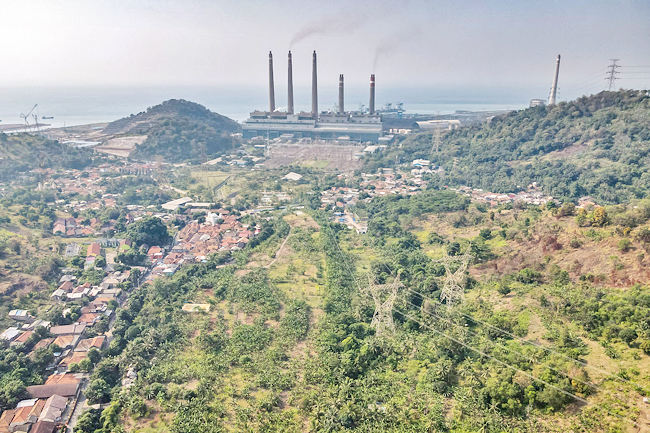JAKARTA (AFP) – Residents and green non-governmental organisations (NGOs) have accused the World Bank of indirectly financing two new coal-fired power plants on Indonesia’s most populous island despite promises to shift to low-carbon funding, according to a complaint filed yesterday.
The complaint from local communities, supported by several NGOs, comes as calls grow for global financial institutions to dramatically redesign their activities to meet the challenges of climate change.
Indonesia’s government is expanding the Suralaya coal-fired plant – one of the biggest in Southeast Asia – in Banten province, which neighbours the capital Jakarta. The upgrade will add two generating units to the eight in operation.
The complaint said the World Bank’s private lending arm International Finance Corporation (IFC) provided a 2019 equity investment of USD15.36 million to South Korean bank Hana’s Indonesia subsidiary, a financer of the project.
That investment is confirmed in a rights issue disclosure on the IFC website, which also said it owned 9.9 per cent of the bank at the time.
“The new… plants are expected to cause thousands of premature deaths and contribute to more than 250 million metric tonnes of carbon dioxide to the earth’s atmosphere,” NGO Inclusive Development International (IDI), which filed the complaint, said in a statement.

That is despite a USD20 billion deal underwritten by the United States and European nations and agreed at the Group of 20 summit last year to wean the archipelago nation’s economy off coal by 2050.
The complaint was filed to the internal watchdog of the World Bank’s private investment arm.
It is not claimed that investment was directly used to fund Suralaya.
Hana gave USD56 million in finance to the new expansion, according to IDI. IFC said in its disclosure the investment would “support the bank’s growth strategy” and finance investment in digital infrastructure.
The World Bank Indonesia, IFC’s media team and Hana Bank Indonesia did not immediately respond to a request for comment. Hana Bank has previously pledged to stop financing new coal-fired power plants by 2030.
The Suralaya expansion is estimated to cost USD3.5 billion, of which it has received nearly USD2 billion in South Korean public financing and the rest from banks including Hana and others based in Malaysia, China and Indonesia.
It will be jointly overseen by South Korean state-owned electricity giant Korea Electric Power Corporation, despite loose pledges by Seoul in recent years to end funding for coal projects overseas.
The IFC previously stated it would finance clients if they planned to divest from coal investments, and in April said it would no longer allow clients to finance new coal projects.
Suralaya costs Indonesia USD1 billion every year because of preventable deaths, work absences and medical costs, according to a study published on Tuesday by the Europe-based Centre for Research on Energy and Clean Air.
Energy campaigner Novita Indri at Trend Asia, one of the NGOs in the complaint, said the coal plant’s expansion “will devastate local communities and tip the world closer to a climate catastrophe”.



